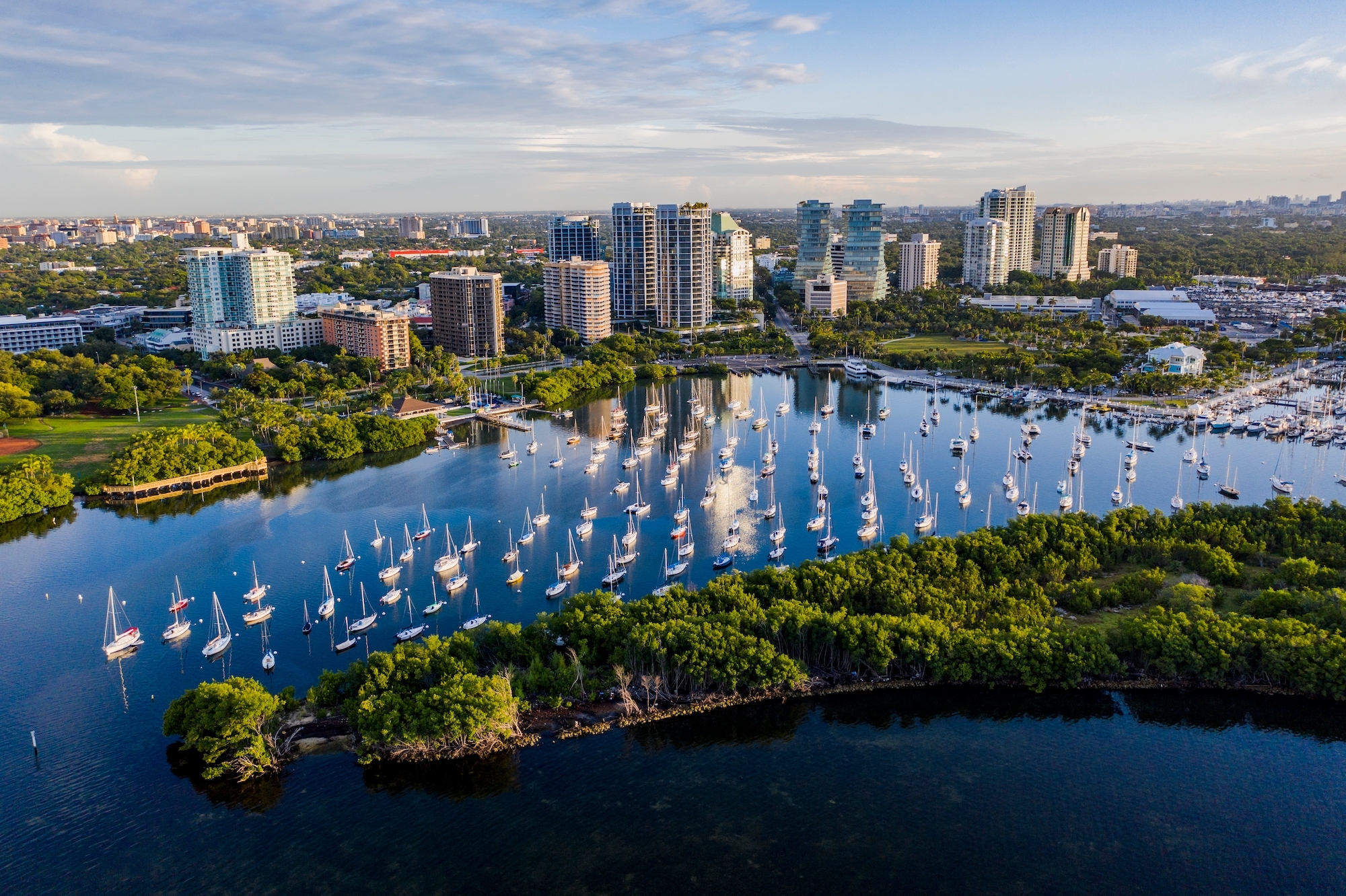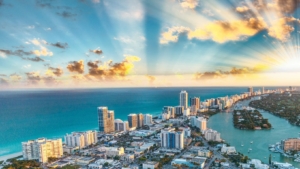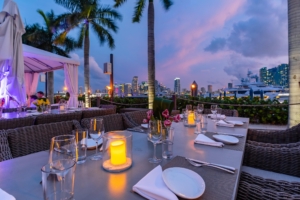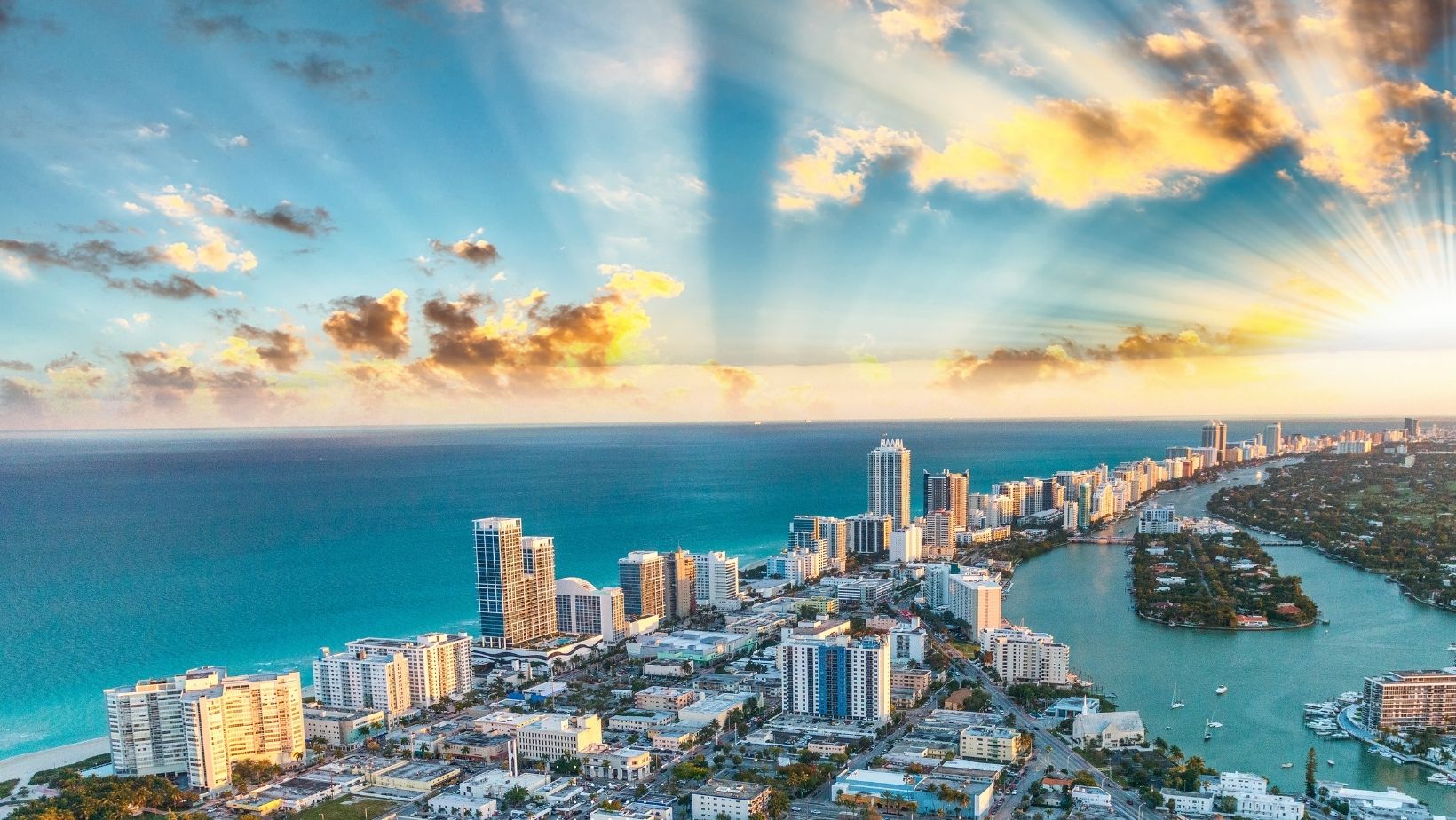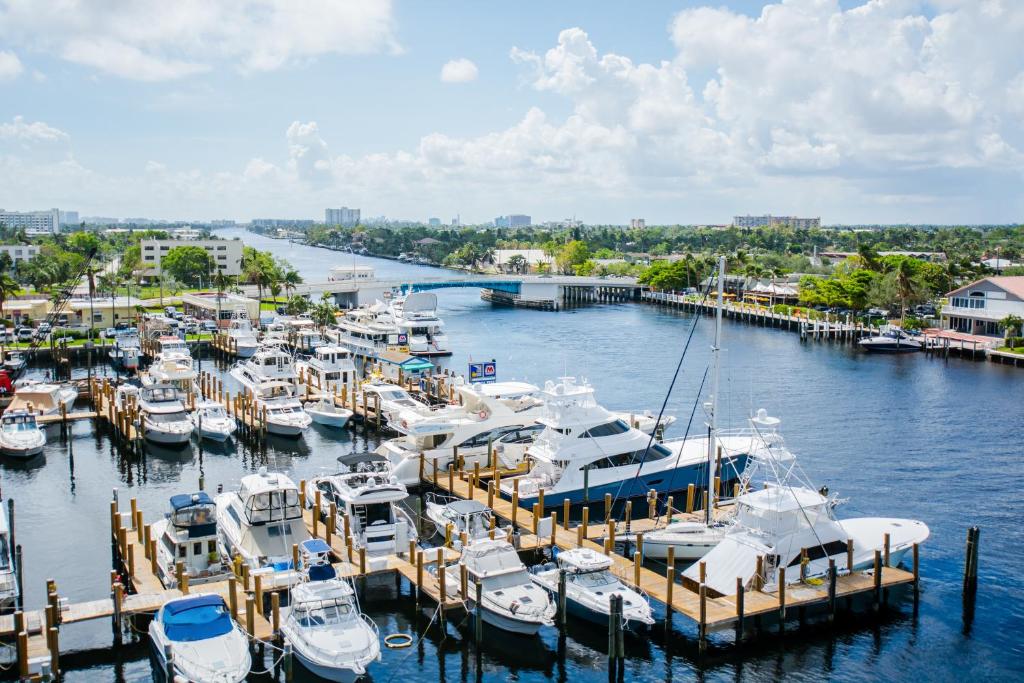South Florida's Elite Property Shuffle: Luxury Homes Change Hands in Q1 2025
Miami's Luxury Real Estate Landscape: Notable Q1 Transactions
The first quarter of 2025 has witnessed significant movement in South Florida's luxury residential market, with several noteworthy properties changing hands across the region's most exclusive neighborhoods. From convicted fraudsters to corporate executives and real estate developers, these high-profile transactions offer a fascinating glimpse into the upper echelons of the market.
These premier properties, spanning from Miami Beach's exclusive islands to Jupiter's gated enclaves, commanded prices ranging from $10 million to $14.5 million, reflecting the enduring appeal of South Florida's luxury real estate despite broader market fluctuations.
La Gorce Island Transaction: Developer's Strategic Acquisition
In a notable Miami Beach transaction, Midtown Capital CEO Alejandro Velez has parted with his La Gorce Island residence for $10.6 million. The purchaser, James Curnin, CEO of Clara Homes and an established developer in his own right, acquired the property at 6666 Pine Tree Lane through a strategic purchase confirmed by Jordan Karp, who represented the buyer through his eponymous brokerage.
This acquisition comes shortly after Curnin and his wife, Jennifer Halegua Curnin, divested their own waterfront La Gorce Island mansion for an impressive $60 million, suggesting a possible downsize or investment strategy shift for the developer.
The Pine Tree Lane residence, originally purchased for just $1 million in 2001, underwent complete reconstruction in 2013. The current structure encompasses 3,900 square feet of living space on a 0.3-acre lot, featuring four bedrooms, four full bathrooms, and one half-bathroom. The property also includes resort-style outdoor amenities centered around a swimming pool.
The Jills Zeder Group at Coldwell Banker Realty, specifically Jill and Danny Hertzberg, represented the property, which initially entered the market in May with an asking price of $12 million—meaning the final transaction closed at approximately 12% below the original listing price.
Fort Lauderdale's High-Profile Sales: Legal Troubles and Hospitality Legacy
Fort Lauderdale's luxury market witnessed two significant transactions, each with compelling backstories involving high-profile sellers.
In a transaction likely motivated by legal obligations, businessman Daniel Hurt sold his oceanfront residence at 2416 North Atlantic Boulevard for $11.7 million to Virginia resident Farideh Sharifi. This sale follows Hurt's May 2024 sentencing to a decade in federal prison for orchestrating a massive $25 million Medicare fraud scheme across multiple states including Florida, Pennsylvania, and New Jersey.
According to U.S. Department of Justice documents, Hurt faces substantial financial penalties including $97 million in restitution payments and an additional $30 million from the mandated sale of his yacht. In a separate civil proceeding, he agreed to pay $27 million to resolve allegations related to violations of the False Claims Act.
Despite these legal challenges, Hurt managed to secure a profitable exit from his real estate holdings, having purchased the Fort Lauderdale property for $8.8 million in 2021. The 7,300-square-foot residence, constructed in 2004 on a 0.2-acre oceanfront parcel, features five bedrooms, five full bathrooms, and two half-bathrooms.
In another significant Fort Lauderdale transaction, hospitality heiress Linda Gill, alongside Walter Morgan, sold their waterfront estate at 1739 Southeast 11th Street for $10 million. The buyer, Tonia Irion, co-founded an electronic waste recycling enterprise.
Gill's family legacy in Florida's hospitality sector is substantial—she is the daughter of George "Bob" Gill Jr., who established both Gill Construction Company and Gill Hotels Company. The senior Gill developed six oceanfront hotels totaling over 1,000 rooms during Fort Lauderdale's post-World War II boom, including landmark properties such as the Sheraton Yankee Clipper, Sheraton Yankee Trader, and Jolly Roger.
The Southeast 11th Street property represents a significant return on investment for Gill and Morgan, who acquired the 0.3-acre waterfront lot for $1.7 million in 2013. They subsequently developed an 8,400-square-foot mansion completed in 2016, featuring seven bedrooms, six full bathrooms, one half-bathroom, and 120 feet of direct water frontage.
Tim Elmes of Compass held the listing, while Keith Rowand of Bascombe Brokerage Company represented the buyer in this transaction, which closed at approximately 32% below its original 2023 asking price of $14.8 million.
Jupiter's Bears Club: Pharmaceutical Executive's Strategic Portfolio Adjustment
Jupiter's exclusive Bears Club community saw a significant transaction as Melissa Simmons, wife of pharmaceutical executive David Simmons, sold a mansion at 107 West Bears Club Drive for $14.5 million to the Edelweiss Land Trust managed by James Langer.
This sale appears to be part of a portfolio restructuring for the couple, as David Simmons—who serves as chairman and CEO of Wilmington, North Carolina-based PPD, a Thermo Fisher Scientific subsidiary—purchased a different Bears Club property for $13.4 million from Johnson & Johnson heirs just last year.
The West Bears Club Drive residence, acquired by the couple for $5.7 million in 2020, represents a substantial return on investment in less than five years. The 10,100-square-foot estate, constructed in 2010 on 0.8 acres, features six bedrooms, eight full bathrooms, two half-bathrooms, and premium amenities including a dedicated gym, home theater, and wine storage room.
The property entered the market in May with an asking price of $16 million, ultimately selling for approximately 9% below list price, still representing one of the region's most substantial residential transactions of the quarter.
Market Insights: Understanding South Florida's Luxury Real Estate Trends
What's driving the continued strength in South Florida's ultra-luxury market?
Despite economic uncertainties nationally, South Florida continues to benefit from favorable tax policies, climate advantages, and an influx of wealth from northeastern states and international buyers, particularly from Latin America and Europe. The region's lifestyle appeal remains undiminished for ultra-high-net-worth individuals seeking primary or secondary residences.
Are these transactions indicative of broader market trends?
While these high-profile sales represent the upper echelon of the market, they reflect continued confidence in South Florida real estate as a store of value. However, the discounts from asking prices (ranging from 9% to 32%) suggest buyers maintain negotiating leverage even in premium segments.
How do legal issues impact luxury property sales?
As seen in the Daniel Hurt transaction, legal proceedings can accelerate property sales as individuals face restitution requirements or asset liquidation orders. These situations sometimes create opportunities for buyers to acquire premium properties under circumstances where sellers may have limited negotiating flexibility.
What role do family legacies play in South Florida real estate?
The region's development history is deeply intertwined with multigenerational family enterprises, as evidenced by the Gill family connection. These legacy relationships continue to influence property ownership and transactions, particularly in established luxury corridors like Fort Lauderdale's waterfront.
How are luxury home buyers responding to higher interest rates?
At this price point, cash transactions remain common, insulating this market segment somewhat from interest rate fluctuations. However, even wealthy buyers have become more value-conscious, as evidenced by the negotiated discounts from asking prices across these transactions.
These transactions highlight South Florida's enduring appeal as a luxury real estate destination, even as individual circumstances—from legal challenges to portfolio adjustments—drive specific sales. As 2025 progresses, market observers will be watching closely to determine whether these Q1 transactions represent isolated events or signal broader trends in the region's premium property landscape.

